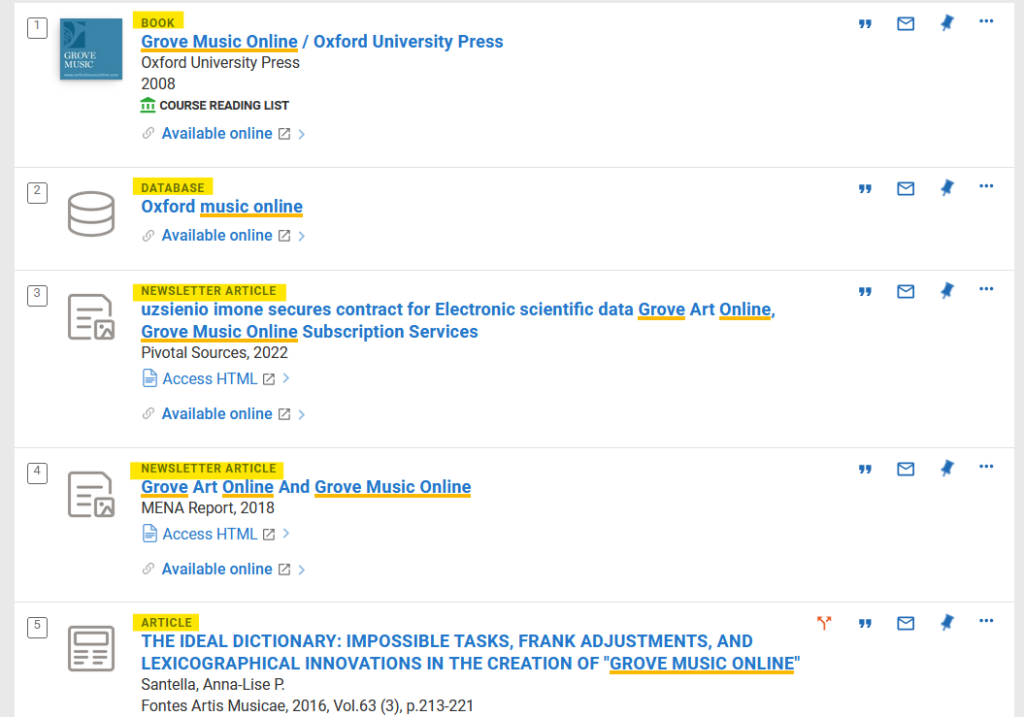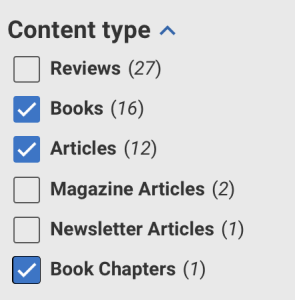6 Evaluating Sources
It is important to evaluate the sources you find to make sure that they are appropriate for your assignment task.
CRAAP Test
The CRAAP test can be a useful evaluation framework and helps you to identify and evaluate:
- Currency: whether the information is up to date or appropriate to the time period you are researching.
- Relevance: the information relates to the topic under study and is appropriately complex.
- Authority: the author/s or creator/s of the information are experts in their field and their credentials and affiliations are clearly stated.
- Accuracy: the information is accurate and supporting evidence and references are provided.
- Purpose: the purpose of the writing is to inform, analyse, or evaluate not to promote a particular opinion.
Using Library Search
Use Library Search, rather than freely available resources to make sure the information you are finding is good quality, scholarly material. Through Library Search you can find reliable primary and secondary materials including:
- books and ebooks
- journal articles
- theses
- conference papers
- music scores
- audio and video
- streaming platforms.
As the Library has 100,000s of resources in the collection there may be multiple sources with the same or similar title.
For example, if you search for “grove music online” you get books, databases, newsletters, and journal articles. Check the resource type to make sure it is what you’re looking for.

Books and Book Reviews
A common confusion in Library Search results is where a search for a book also brings up reviews of that book. In the majority of cases, these reviews are not relevant to your work. It is usually a good idea to exclude reviews from search results or be specific about what kinds of source you are looking for. You can exclude or limit source types in the Content type filter in Library Search.

Evaluating Free Online Resources
You may use free online resources in your research. However, before using any, consider whether the Library has a resource or database that is more appropriate.
If you use Google, make sure you are searching Google Scholar. Link Google Scholar to UQ Library to get the full-text of journal articles. Always use Library Search and databases in addition to Google Scholar.
Magazines
Music magazines may be an appropriate source of information if you are researching the contemporary reception of an artist, band, album, or performance. However, magazines are not peer reviewed, and the journalists writing for magazines are not always experts.
Consider using instead: academic journal articles. These are more likely to be peer reviewed and are written by music researchers and academics.
YouTube and Spotify
While YouTube and Spotify can be used to find recordings or music performances, it is not always easy to verify the authority or credentials of where the recording has come from. YouTube recordings may also breach copyright.
Consider using instead: the Library’s audio, sound and video subscription databases.
International Music Score Library Project (IMSLP)
The International Music Score Library Project (IMSLP) provides free access to a large number of scores and recordings. While you can use it to find sources that are not available in Library databases, it can be difficult to identify the original source of the score or recording. Additionally, it requires practice and experience to distinguish between good and poor-quality editions of the same work that might be published there.
Consider using instead: the Library’s collection of online or hard copy scores.
Wikipedia
Wikipedia is a ubiquitous source of information across all fields. In many areas of music research, its articles are reliable and of a reasonably good standard. However, as an open source database it is not subject to the same rigorous peer review processes as those used for academic books, journals and reference works. In some areas, its reliability is questionable. It can be handy for a quick initial scan of a topic, but should not be used as a secondary source in your academic writing.
Consider using instead: Oxford Music Online (UQ students & staff) via the UQ Library’s subscription.

